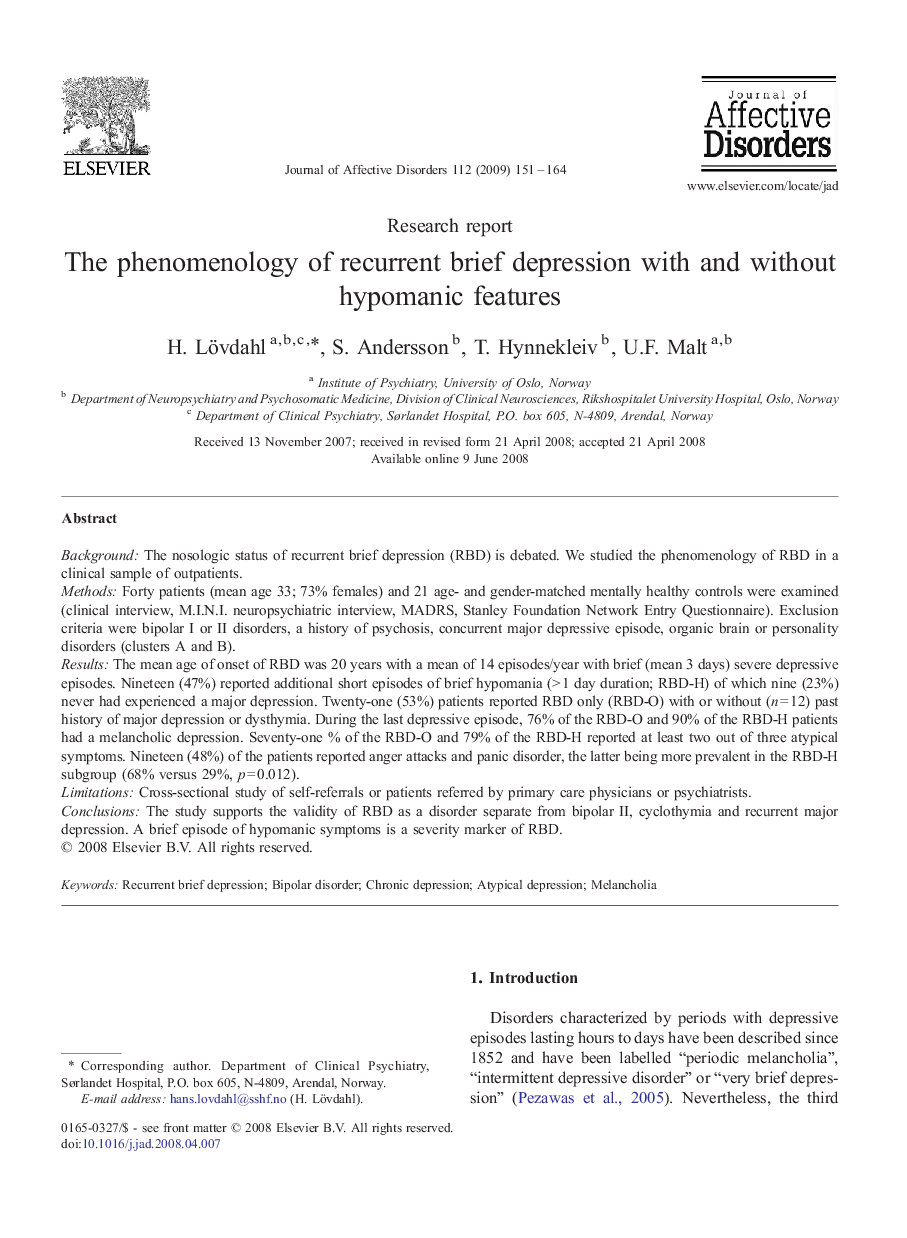| Article ID | Journal | Published Year | Pages | File Type |
|---|---|---|---|---|
| 6236649 | Journal of Affective Disorders | 2009 | 14 Pages |
BackgroundThe nosologic status of recurrent brief depression (RBD) is debated. We studied the phenomenology of RBD in a clinical sample of outpatients.MethodsForty patients (mean age 33; 73% females) and 21 age- and gender-matched mentally healthy controls were examined (clinical interview, M.I.N.I. neuropsychiatric interview, MADRS, Stanley Foundation Network Entry Questionnaire). Exclusion criteria were bipolar I or II disorders, a history of psychosis, concurrent major depressive episode, organic brain or personality disorders (clusters A and B).ResultsThe mean age of onset of RBD was 20 years with a mean of 14 episodes/year with brief (mean 3 days) severe depressive episodes. Nineteen (47%) reported additional short episodes of brief hypomania (> 1 day duration; RBD-H) of which nine (23%) never had experienced a major depression. Twenty-one (53%) patients reported RBD only (RBD-O) with or without (n = 12) past history of major depression or dysthymia. During the last depressive episode, 76% of the RBD-O and 90% of the RBD-H patients had a melancholic depression. Seventy-one % of the RBD-O and 79% of the RBD-H reported at least two out of three atypical symptoms. Nineteen (48%) of the patients reported anger attacks and panic disorder, the latter being more prevalent in the RBD-H subgroup (68% versus 29%, p = 0.012).LimitationsCross-sectional study of self-referrals or patients referred by primary care physicians or psychiatrists.ConclusionsThe study supports the validity of RBD as a disorder separate from bipolar II, cyclothymia and recurrent major depression. A brief episode of hypomanic symptoms is a severity marker of RBD.
